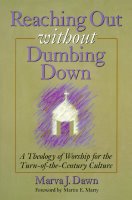I asked my friend why component parties in Barisian Nasional are not doing more to voice objections to UMNO's Islamist ambitions and he emailed this brief reply “…vote against BN in the next GE” - together with a press statement.
Press Statement:
The recent stop talk order given by the prime minister to the Article 11 forum organisers sends a wrong signal to the international community on Malaysia’s intention to join the ranks of the civilised world. The action is an antithesis to the perception painted by the government to the international community that Malaysia is a modern, moderate and democratic nation which celebrates its religious and cultural diversity. The gag order bears serious constitutional consequences for all Malaysians.There are a few pertinent questions that ought to be answered: first, are Malaysians legally allowed to discuss issues pertaining to their rights enshrined in the federal constitution even if these issues are related to ethnic relations, religion, cultural and social rights? Who is to decide if the average Malaysians are ready or not to discuss ethnic relations and religious issues affecting them?
Second, is the action taken by the state in stopping a legally constituted forum an act of undermining the rights to freedom of speech enshrined in the federal constitution?
Third, what are the constitutional consequences faced by all citizens in the event that their constitutional rights are usurped by the state? What the recourse available to them to seek protection of their constitutional rights?
Fourth, by stopping any civilised discourse on ethnic relations or religious freedom can the state find an amicable solution to the inherent issues surfaced in the Moorthy, Sharmala and Linda Joy cases or the ethnic biases which appeared in several ethnic relations and history publications?
A democratically elected government is responsible to defend and protect the constitutional rights of its people to freely exercise their rights within the boundaries of the nation’s legal framework. In this case, the anti-IFC protesters can continue their peaceful and non-violent protest against the proceedings of the Article 11 forum but the forum should be allowed to continue. The role of the state is to ensure that the action of the opposing parties is not affecting the rights of the other.With the control of coercive instruments of power including several draconian legislations e.g. the Internal Security Act at the disposal of the government, it is beyond doubt that the threat from the government to act against the continuation of the discourse is real. The only thing that we can do is to remind the government that its action is a recipe of authoritarian rule. The price is Malaysia’s international standing as the champion of the oppressed nations. We should not preach what we cannot practice.
Khoo Kay Peng













